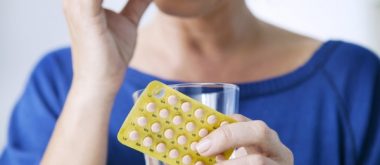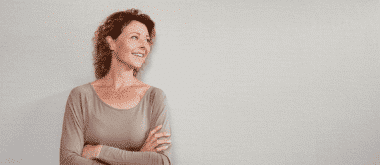Studies show postmenopausal women encounter numerous physiological and psychological changes that can severely impact their quality of life. One study from the Cleveland Clinic revealed that it is not uncommon for women to experience hot flashes, insomnia, low libido, anxiety, depression and other symptoms due to the extreme shifts in hormone levels resulting from menopause.
On average, menopause, typically defined as going 12 consecutive months without a menstrual period, occurs when women are between the ages of 45 and 55. To gain relief from menopause-related symptoms, many women turn to postmenopausal hormone therapy (PMHT). But it turns out this treatment modality may have more to offer than just relief from difficult menopause-related symptoms. Considering the impact of PMHT on a woman’s duodenal microbiome, it’s a treatment modality that could very well save her life.
What Women Should Know About Postmenopausal Hormone Therapy Impact on the Duodenal Microbiome
When women enter and ultimately settle into menopause, their ovaries secrete fewer estrogen and progesterone hormones. The drop-off in the production of these hormones eventually opens the door to symptoms typical of menopause. Thankfully, hormone replacement therapy, which, among other things, comprises prescription-based hormone replacement drugs, can provide women with significant relief from such symptoms.
Some of the FDA-approved hormone therapy drugs include the following:
- Prempro
- Premarin
- Provera
- Activella
- Angeliq
- EstroGel
- Estraderm
- Estrasorb
- Estradiol
- Climara

The Connection Between the Duodenal Microbiome and Heart Health
The duodenal microbiome is the collection of good bacteria in the small intestines and, to some extent, the stomach. The purpose of that good bacteria is to help with digestion, destroy harmful bacteria and strengthen the immune system. Surprisingly, it has been found that postmenopausal hormone replacement drugs prescribed to combat menopause-related symptoms can enhance these processes. At the same time, they alter the small intestinal microbiome, which lowers the risk of developing cardiovascular disease (CVD), according to a study from Cedars Sinai.
This study also found that postmenopausal hormone replacement drugs help stimulate an increase in the bacteria species Bacteroidetes and the genus Prevotella, which further reduces the risk of cardiovascular disease. But it does not end there. Researchers and scientists found that postmenopausal women on hormone therapy had the same or similar microbial diversity, fasting glucose levels and testosterone levels as much younger women, all of which further drives down a woman’s chances of developing cardiovascular disease.
The study also looked at the small intestinal microbiome of postmenopausal women not receiving hormone therapy. In those reviews, it was found that women who are not on hormone therapy had a much higher percentage of pathogenic bacteria, which put them at an above-average risk of developing cardiovascular disease.
All in all, there is evidence to suggest postmenopausal hormone therapy may protect women against CVD. Along with contributing to improved microbial diversity, fasting glucose levels, and testosterone levels, not to mention triggering an increase in the bacteria species Bacteroidetes and the genus Prevotella, hormone therapy improves digestive health, nutrient absorption and regulation of the immune system. All of these things spell better overall health for postmenopausal women.





